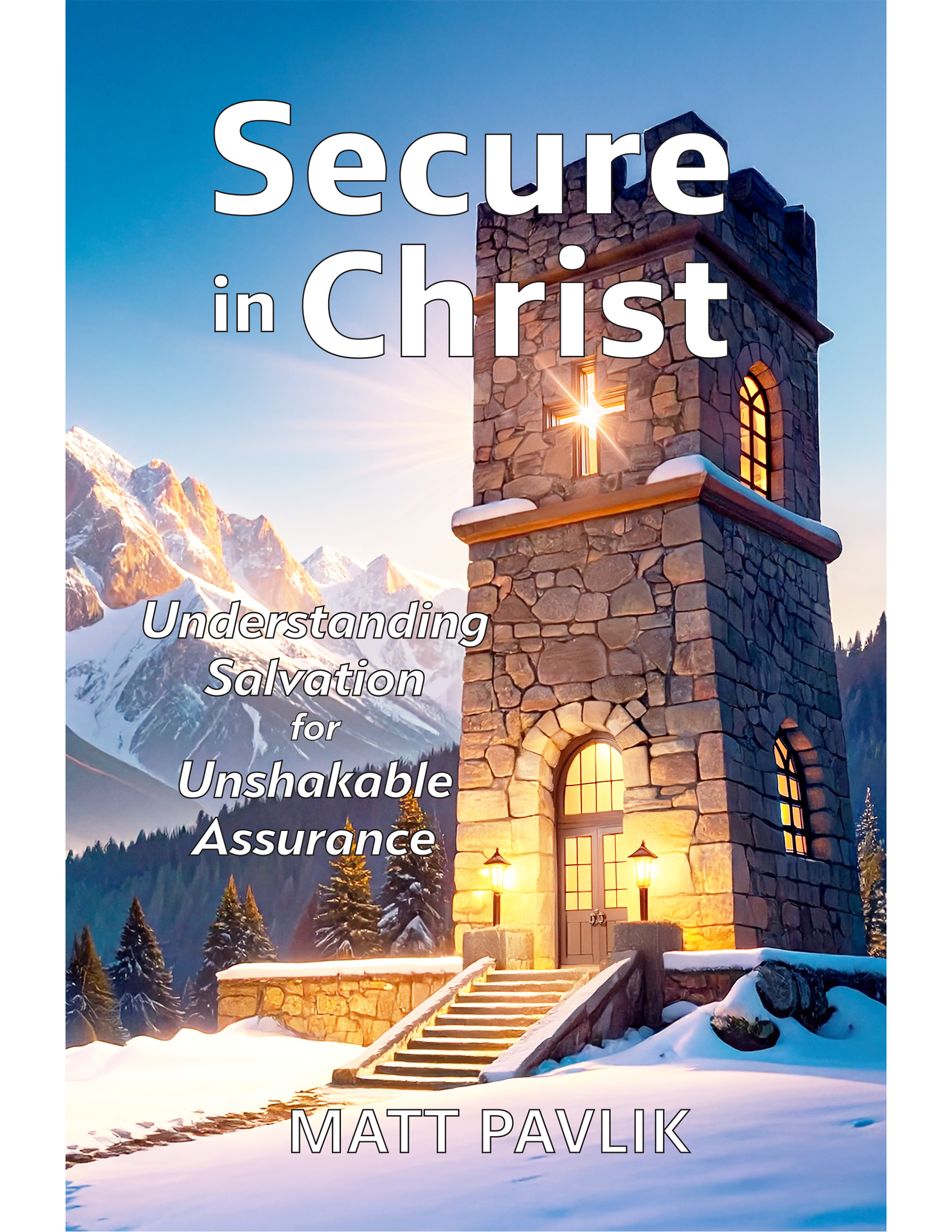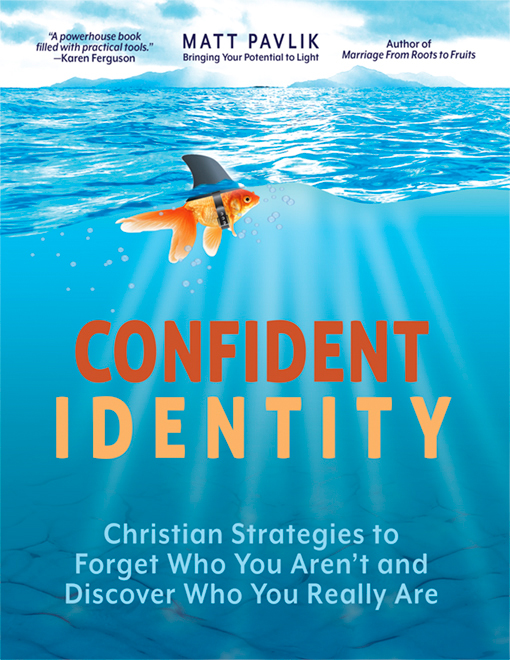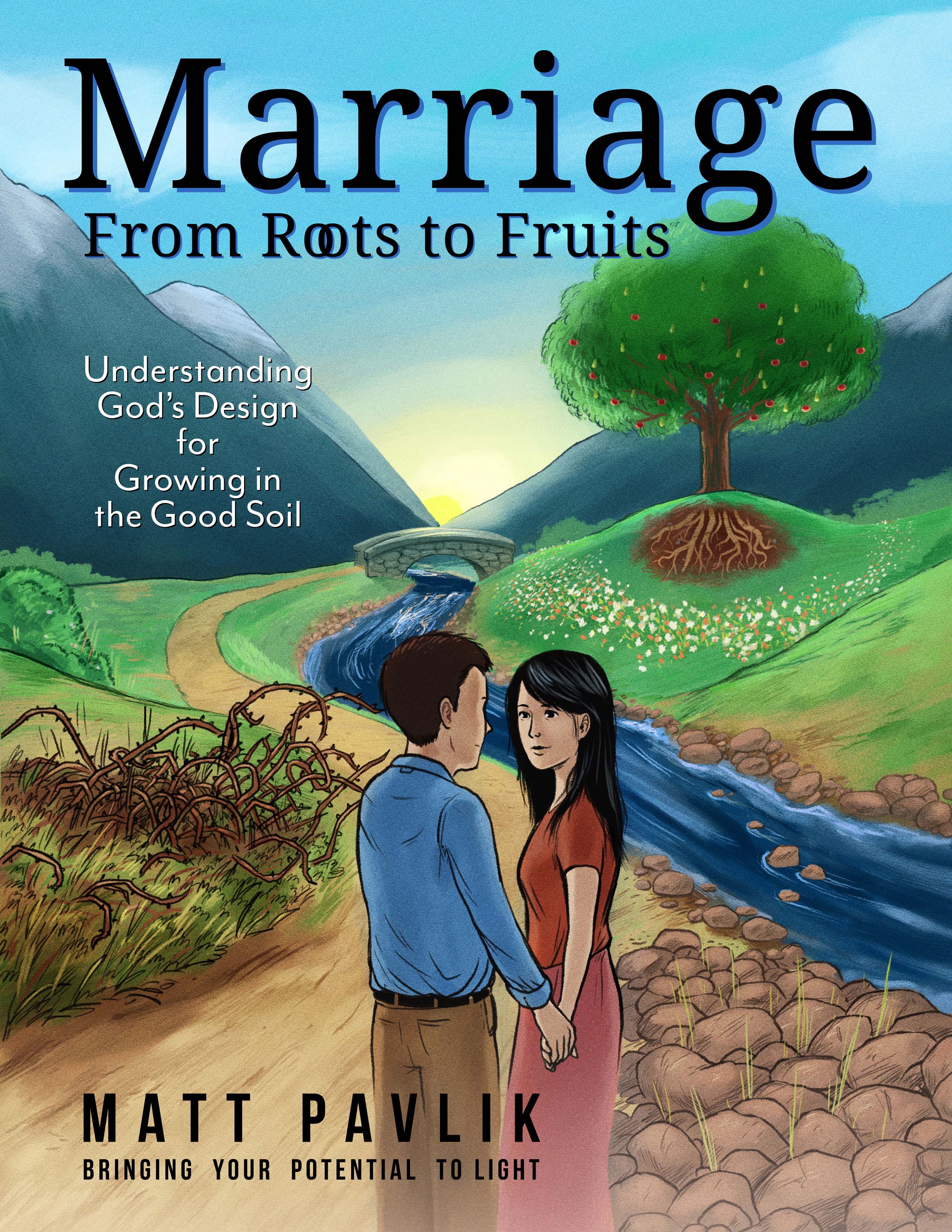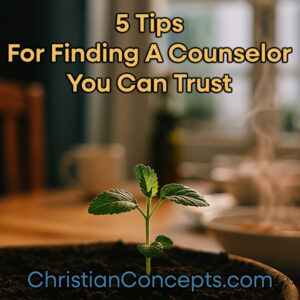A Christian guide to choosing a trustworthy counselor—emotionally safe, spiritually aligned, and relationally honest.
Healthy trust in a counselor is the same as any other relationship, whether family, friends, co-workers, or God. The best trust starts slowly and builds slowly. God is perfect, but He chooses to use imperfect counselors to bring healing through consistent safety, honest connection, and shared pursuit of truth.
You know something’s not right. You’ve carried the ache long enough to realize it won’t go away on its own. You’ve talked to friends, prayed, journaled, but it didn’t quench your thirst—the weight remains. You’re not just curious about counseling. You’re hungry for it. And yet, something holds you back.
Maybe it’s fear. Maybe it’s disappointment. Maybe it’s the haunting question: What if I open up and nothing happens or I get hurt again?
If that’s you, this message is for you.
You’re Not Just Curious—You’re Cautiously Hopeful
You’re not in full-blown crisis, but you know one is coming if nothing changes. You’ve tasted the loneliness of not belonging. You’ve felt the sting of being misunderstood. You’ve wondered if your hunger for connection is wrong—or worse, unworthy of being met.
You’re like someone who smells food but is afraid to eat. You’re hungry, but unsure if the food is safe—or if you’re even allowed to eat. What if it’s poisoned? What if you’re not allowed to have it? What if asking for help means you’re weak?
But still, you hope. You’re exploring. You’re wondering if maybe, just maybe, there’s a counselor out there who could be safe.
What You Long For
You want relief from the emotional pain of isolation, low self-worth, and not belonging. You want to know you matter. That you’re not invisible. That someone sees you and says, “You belong here.”
Trusting a counselor means believing that nourishment is possible. It means believing that God can use human connection to deliver His comfort. That someone can sit with you in your pain and not flinch. That you can open up and not be rejected. That healing is not just for other people—it’s for you, too.
And spiritually? It means seeing God more clearly. Trusting Him more deeply. Believing that the God who sees your wounds also sends people to help bind them.
Why It’s So Hard
You’ve been disappointed before. Maybe burned. Maybe by a counselor. Maybe by a pastor. Maybe by someone who said they cared but didn’t stay. You’ve learned to be cautious. You’ve learned to survive on your own.
You might feel like you’re allergic to the kind of help people offer. You’ve tried to digest what others offer, but it never sits right. You’re left feeling unseen—too much, too different, or too complicated. You’ve tried to belong, but it always felt like you had to contort yourself to fit in. And that’s exhausting.
Worse, you might wonder if God has forgotten you. If He’s building a family of believers, why do you feel like the one left out?
What’s at Stake
If you don’t find a trustworthy counselor—or at least try—the isolation can deepen. The lies grow louder: You’re not worth it. You’re alone. Even God doesn’t care.
At best, you live with a quiet ache. At worst, despair takes over. You may still affirm your trust in God—but emotionally, you’re just surviving. Waiting for heaven to make things right.
But what if healing could begin now?
What Healing Can Look Like
A trustworthy counselor is more than a professional—they’re a living reminder that God hasn’t given up on you. They stand in the gap, helping you receive what God wants to give: comfort, clarity, connection. They don’t replace God—they help you reposition your heart to receive from Him.
When you trust a counselor, you’re not just trusting a person. You’re learning to trust again. To trust God. To receive again. To believe that you’re not too much—and never alone.
And as you heal, you’ll find strength to give back. To love others. To live with purpose. To praise the God who never stopped pursuing you.
Why You Can Trust Me
I know what it’s like to feel like you don’t belong. My personal counseling helped me see I have value. Encouragement from others helped me believe I have purpose. That God loves me.
Now, I want to be that kind of presence for others—a mediator who understands pain and helps people connect with God.
How to Start: A Gentle Guide to Choosing a Counselor
- Know your worldview. What are your convictions and beliefs? Look for a counselor who aligns with them.
- Know what kind of therapy works for you. Talk therapy, EMDR, spiritual direction, biblical counseling—make sure your counselor is trained in what you need.
- Look for honesty and humility. A trustworthy counselor admits mistakes, speaks truth even when it’s hard, and listens deeply.
- Notice how they treat you. Do you feel warmth? Do you sense they genuinely like you?
- Trust your gut. If something feels off, bring it up. It might be part of your healing. But if the discomfort persists and speaking directly about it does not create new positive movement, it’s okay to find someone else.
Remember, counseling is a relationship. You’re allowed to ask questions, express discomfort, and seek a fit that honors your story. Discomfort doesn’t always signal danger—it may be the gentle ache of growth, the stretching of truth into wounded places. To heal, to be aligned with the truth, will be uncomfortable and even painful, but a hopeful stirring up of what aches.
In your first sessions, ask your counselor about their worldview and approach. For example, as a counselor I would say: “I believe the Bible is God’s truth, and counseling is about experiencing emotional healing by aligning with that truth.” Then ask yourself: Does this approach help me grow?
Read their informed consent document. Ask questions. Go at your own pace. If you’re feeling especially vulnerable, say so. A good counselor will honor that.
You’re Not Alone
If you’re ready to take the next step, here are a few places to start:
- Focus on the Family’s Christian Counselor Search
- Psychology Today’s Therapist Finder
- New Reflections Counseling
You don’t have to carry this alone. Healing is not a solo journey—it’s God’s sacred invitation to experience His glorious truth through relationship. There is help. There is hope. And there are people—counselors, yes, but also brothers and sisters in Christ—who want to walk with you toward healing.
Learn More
5 Ideas for Supercharging Therapy
Image created by Matt Pavlik using copilot.
Matt Pavlik is a professional counselor, author, and devoted follower of Christ. With decades of experience in Christian counseling, he writes with theological depth and everyday clarity. His resources—centered on salvation, identity, marriage, and emotional healing—are anchored in Scripture and guide believers to discover the freedom of their identity in Christ and the security of their salvation in Him. He and his wife Georgette, married since 1999, live in Centerville, Ohio, and have four adult children.




Leave a Reply